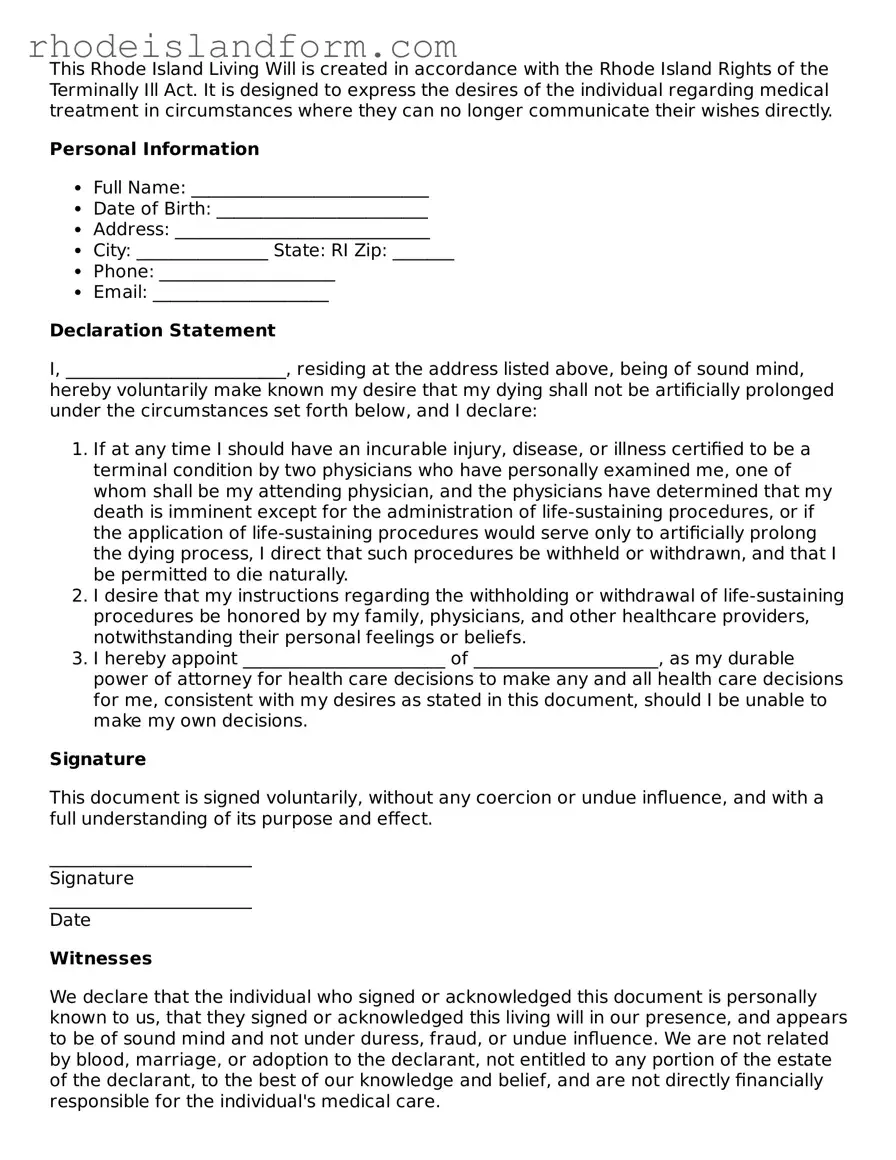What is a Rhode Island Living Will?
A Rhode Island Living Will is a legal document that allows an individual to outline their preferences for medical care, specifically end-of-life treatment, in the event that they are unable to communicate their decisions. It ensures that the person's wishes regarding life-sustaining treatment are known and respected when they can no longer speak for themselves.
Who can create a Living Will in Rhode Island?
Any competent individual over the age of 18 can create a Living Will in Rhode Island. It requires the individual to clearly understand the nature and purpose of the document, including its implications and the specific directions it provides regarding medical treatment.
How does one create a Rhode Island Living Will?
To create a Living Will in Rhode Island, the individual must complete the Living Will form, detailing their wishes regarding life-sustaining treatment. The document must then be signed in the presence of two witnesses, who also need to sign, attesting that the individual appears to be of sound mind and under no duress or undue influence. It is recommended but not required to have the document notarized for additional legal authenticity.
What kinds of medical interventions can be addressed in a Rhode Island Living Will?
A Living Will in Rhode Island can address a variety of medical interventions including, but not limited to, the use of life-support systems, artificial hydration and nutrition (feeding tubes), resuscitation efforts, and the use of pain-relieving medication. It allows individuals to clearly express their preferences regarding these treatments, including under what conditions they would or would not want them used.
Does a Living Will mean that medical treatment will be withdrawn immediately?
No, a Living Will does not mean that all medical treatment will be withdrawn immediately. It specifically addresses the use of life-sustaining treatments when an individual is terminally ill or in a persistent vegetative state and cannot communicate their wishes. A Living Will allows for the administration of pain relief and comfort care to ensure the individual's dignity and reduce suffering.
Can a Living Will be changed or revoked?
Yes, a Living Will in Rhode Island can be changed or revoked at any time by the person who created it, as long as they are competent to make such decisions. This can be done by creating a new Living Will that outlines new wishes and invalidates the previous document, by physically destroying the original document, or by a written and dated statement expressing the intent to revoke.
What happens if there is no Living Will?
If an individual has not created a Living Will and they become unable to communicate their health care decisions, Rhode Island law allows for health care providers to make treatment decisions based on conversations with the individual’s family or appointed health care proxy, if one exists. These decisions might not always reflect the individual's personal wishes, highlighting the importance of having a Living Living Will to ensure one’s preferences are known and respected.
